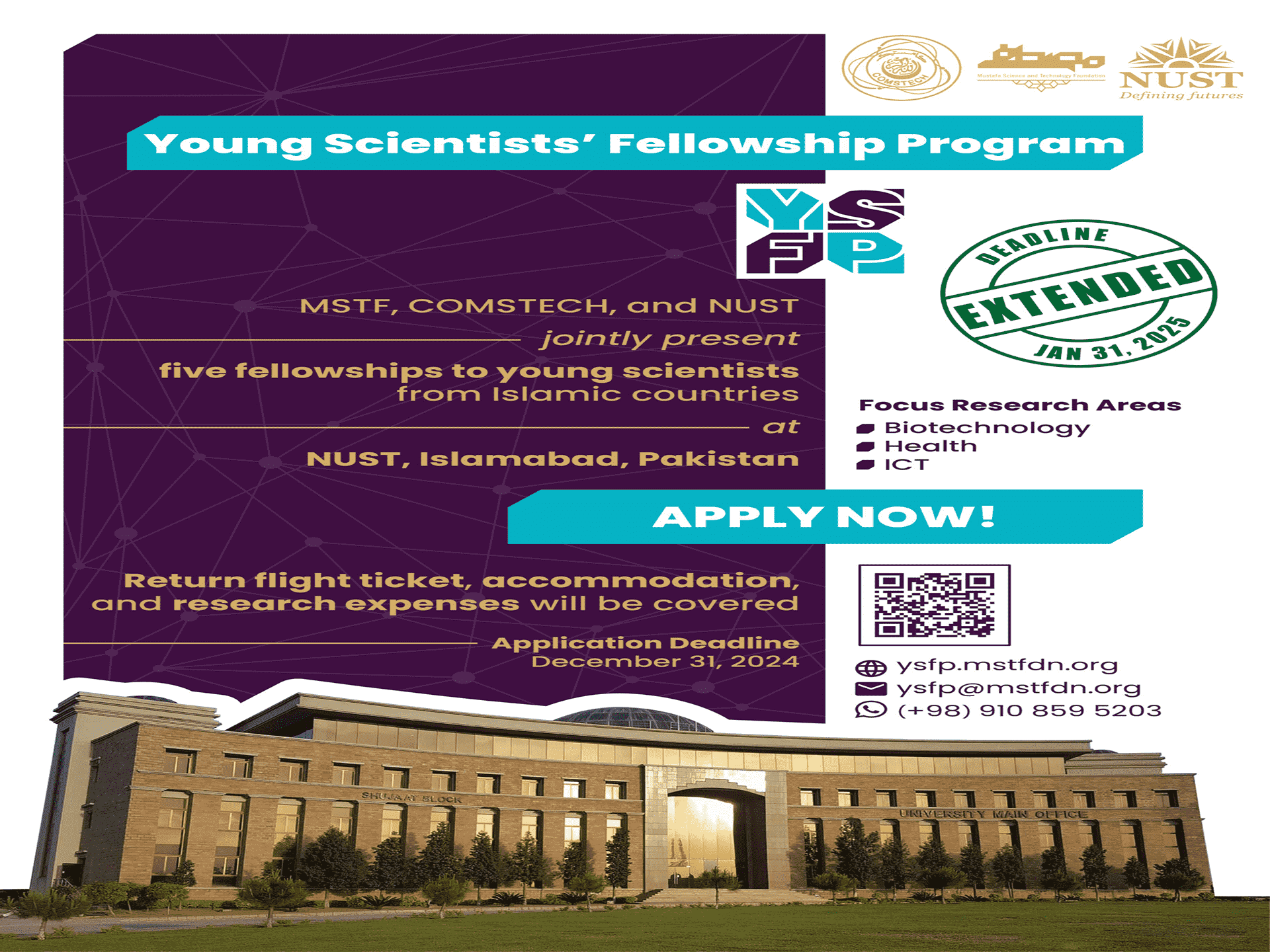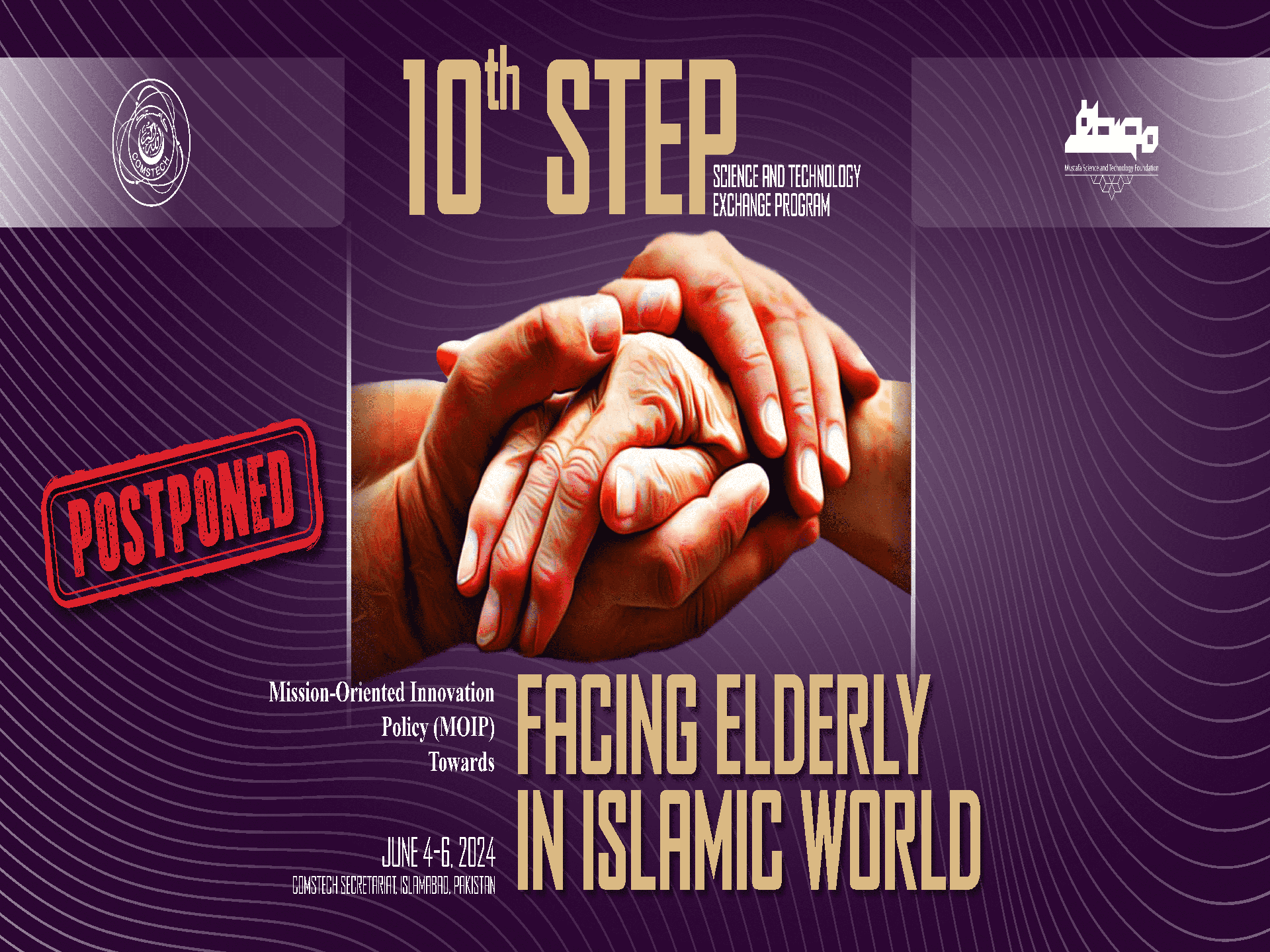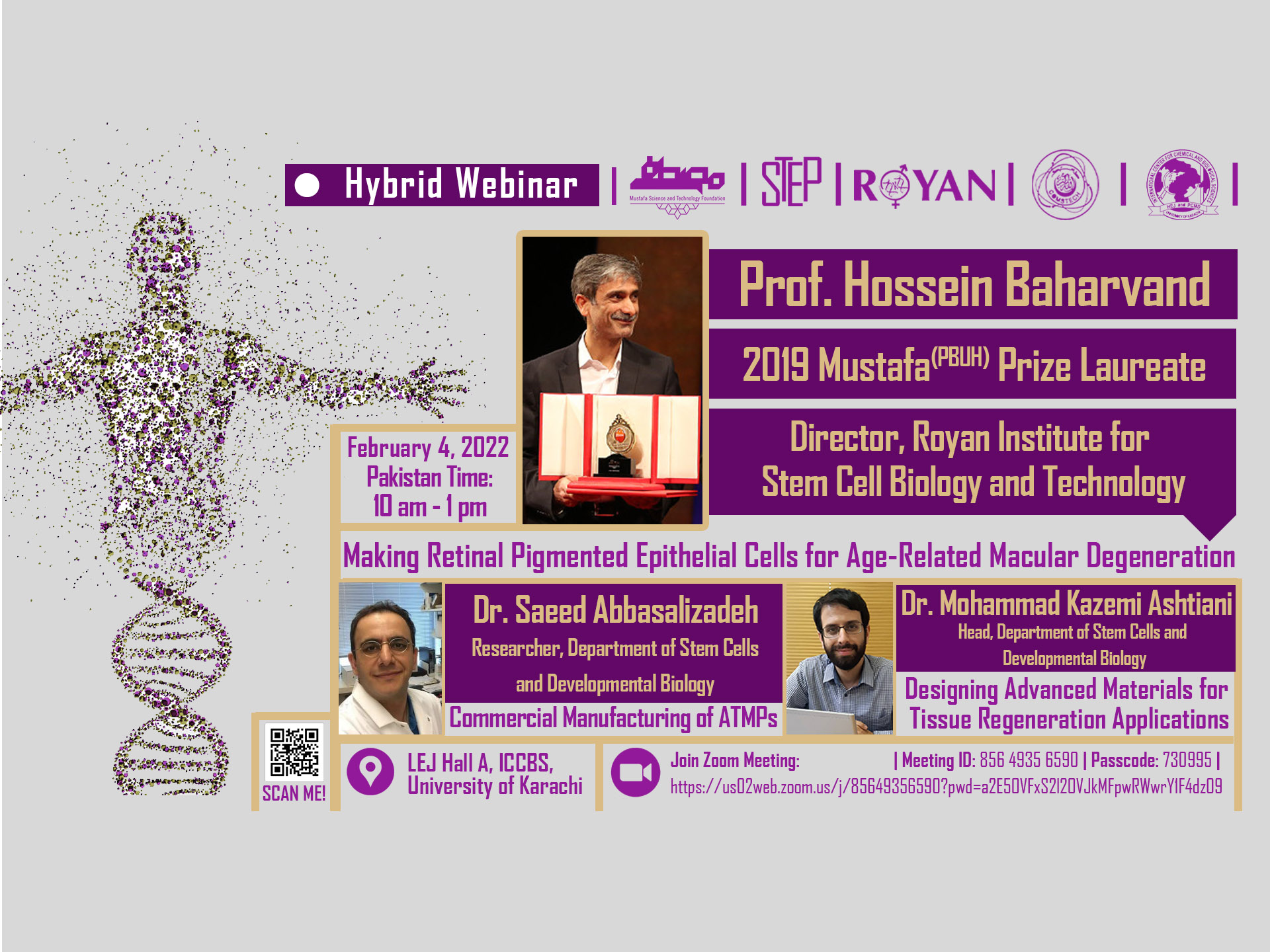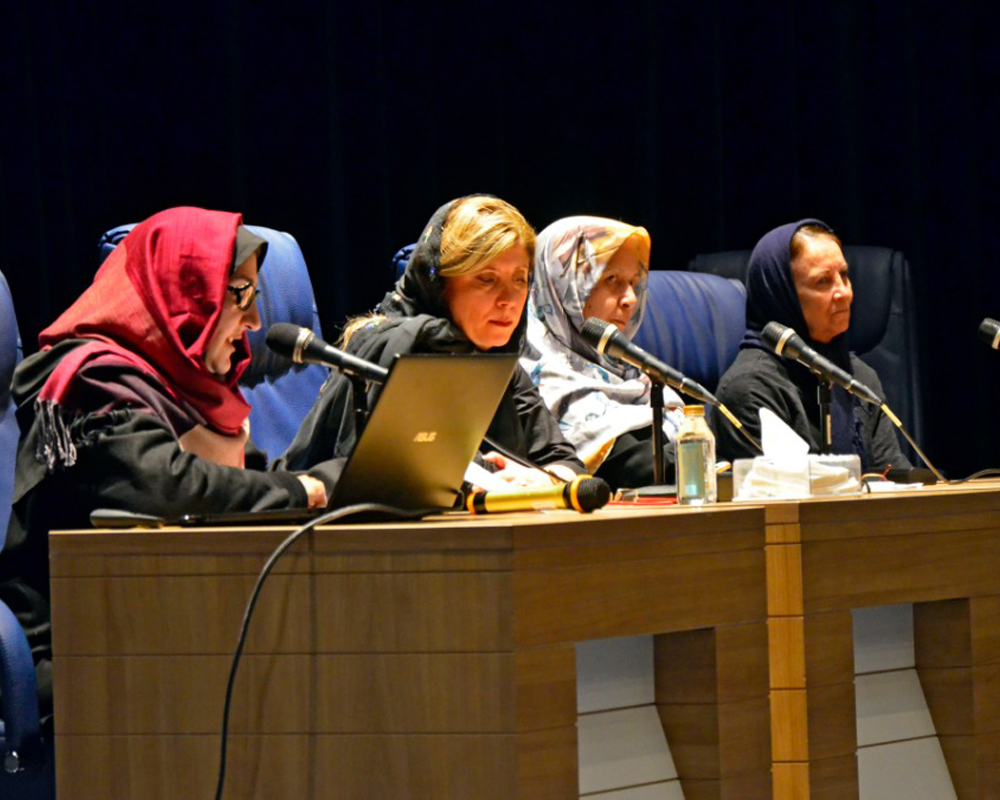TOP STORIES
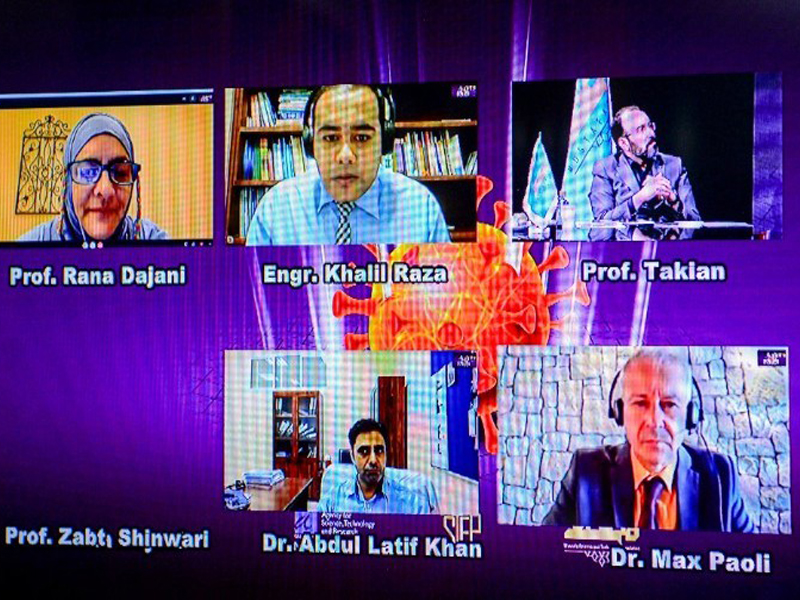
COVID-19 necessitates networking among Islamic countries
28 May. 2020
On the second and last day of STEP virtual summits, several Mustafa Prize laureates and eminent scientists from countries such as Italy, Japan, Kazakstan, Pakistan, Singapore, and Turkey met virtually to share their research findings, experiences, and achievements regarding Coronavirus pandemic.
Composed of keynote speeches by Jackie Ying and Ugur Sahin, leading scientists in combating Coronavirus, and panel discussions including 30 healthcare officials and scientists, the 7th STEP served as a great platform to synergize the capacities of scientists and experts in the Islamic world to help solve this global crisis.
At the beginning of the program, Jorge Chediek, UNOSSC Director and Envoy of the Secretary-General on South-South Cooperation, and Olzhas Abishev, Vice-Minister of Healthcare of the Republic of Kazakhstan gave inaugural messages.
"We are putting together some of the best minds in the Islamic world to confront the challenges brought about by Coronavirus," Chediek stated. Calling STEP "a perfect example to overcome the pandemic and establish a last-longing network among Muslim scientists," Abishev pointed to the necessity of "consolidation and solidarity in overcoming this disease. We should work together and openly share expertise."
After the inauguration, four Mustafa Prize laureates, Jackie Ying, Ugur Sahin, Hossein Baharvand, and Mohammad Abdolahad, presented their keynote speeches.
Ying discussed the recent works that she has been conducting along with her research team, to develop an effective COVID-19 test kit.
She stressed that right now the world needs "sensitive and specific" COVID-19 test kits.
"There are many kits out there, but the sensitivity is really important because it determines the accuracy of the result," she noted.
She said: "Recently, Nanobiolab has developed CEPAT which is a novel exponential isothermal amplification method detecting Coronavirus in less than 10 minutes. We are going beyond to give better sensitivity and specification."
Immunologist Ugur Sahin, talked about an mRNA-based vaccine that he and his research team have developed which was recently tested on human beings.
According to Sahin, "the clinical trial protocol of the vaccine started in Germany on April 23, 2020, with a target population of 200 healthy subjects aged 18 to 55. The objective of this was safety, tolerability, immunogenicity, in addition to determining the optimal dose for further studies."
He also announced that the first results of this study are expected by the end of June/early July.
Hossein Baharvand discussed "Mesenchymal Stem Cells for Treatment of Patients with SARS-CoV-2-related."
The 2019 Mustafa Prize laureate from Islamic countries, stated that "the findings suggest that infusions of MSC are safe and well-tolerated in patients with acute or chronic compromised respiratory conditions. Recently, there have been two reports from China that show there has been significant improvement in outcomes of seven COVID pneumonia patients."
Mohammad Abdolahad, another 2019 Mustafa Prize laureate from Islamic countries, talked about a detector that he and his team have designed. This system which is called ROS detector of sputum sample (RDSS) is "a simple electrochemical sensor with Nanostructure that selectively detects the intensity of ROS in the sputum sample just in 30 seconds."
Abdolahad stressed that "the designed ROS detector system is not a COVID-19 detector, because it detects material in the sputum of patients, who are then referred to COVID-19 specialists."
Next, a panel discussion was held during which seven scientists from Iran, Pakistan, Italy, and Jordan discussed "Scientific and Technological Networking in Facing the Coronavirus Challenges in the Islamic World."
Pointing to the importance of scientific and political cooperation, Rana Dajani said "we are in this together. General public will suffer if we don’t collaborate. We should Identify our strengths and weaknesses to go forward. It's not about competition, but collaboration."
She thus suggested "communicating science to the public in terms of ethics and values, and informing them in terms of education."
A roundtable was also held during which senior officials from Iran, Italy, Japan, and Pakistan shared strategies to discuss "Post-Coronavirus: Policies and Strategies for the second wave of Coronavirus."
Max Paoli spoke of the major issues that caused Italy to be hard hit by Coronavirus.
"First of all, Italian culture does not respect governmental rules. A lot of people disrespect the rules. The second point is we are paying for the low budget in the health sector over the past two years. Germany has about five times more emergency beds than Italy. German health facilities are way better."
Haruka Sakamoto also discussed Japan's strategies for dealing with COVID-19, stating that "Japan put priority on preventing the cluster causing another infected cluster and did not put much emphasis on sporadic cases."
According to her, the three strategies of “testing, contact tracing, and isolation policy” were observed in Japan.
After the roundtable, the individual speakers gave their presentations on various aspects of the Coronavirus. For example, Zulfiqar A. Bhutta, co-director of the Centre for Global Child Health, discussed Children and COVID-19. He stated that "the majority of COVID-19 cases to date have been reported in adults. Available data suggest approximately 1-2 percent of cases in children. Also, pediatric clinical manifestations are not typical and relatively milder, compared with that of adult patients."
The 7th Science and Technology Exchange Program thus came to an end after thirteen hours of scientific discussion on COVID-19 research findings and various strategies to fight it.
News Source: MSTF Media



